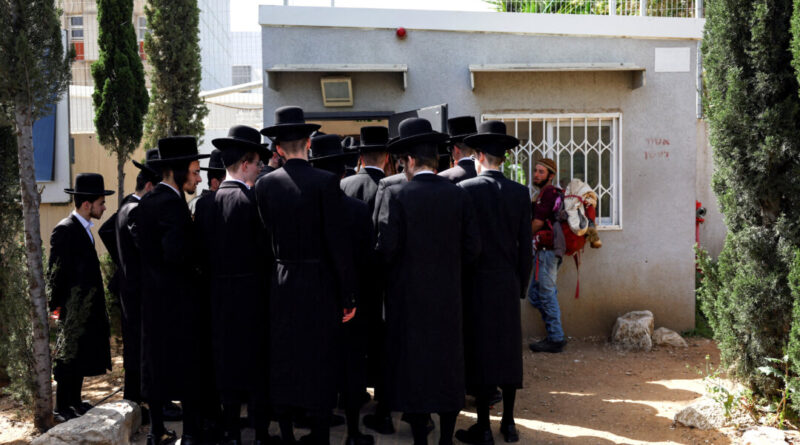Israeli Army to Start Conscription of Ultra-Orthodox Jews on July 21
The Israeli Supreme Court ruled in June that ultra-Orthodox Jews could no longer be exempt from the country’s compulsory military service system.
The Israeli military will begin issuing its first round of military draft notices to members of the ultra-Orthodox Jewish community on Sunday, July 21.
The draft notices come after the Israeli Supreme Court ruled in June that the country’s compulsory military service requirements should extend to all members of Israeli society. The ultra-Orthodox Haredi community had enjoyed a full exemption from the military service laws prior to the high court’s June 25 ruling.
Leaders within the Haredi community contend that religious study is of equal importance to the country as military service and that their generations-old way of life will be threatened if their followers serve in the army. However, the Israeli Supreme Court deemed military service exemptions for the Haredi community to be discriminatory and said the exemptions could strain military manpower during periods of prolonged conflict.
An Israel Defense Forces (IDF) spokesperson confirmed the plans to begin issuing draft notices in an emailed statement to The Epoch Times on Friday, July 19.
“The summons orders are part of the IDF’s program to promote the integration of members of the ultra-Orthodox community into its ranks,” the IDF spokesperson said.
The draft notices mark the first phase of the military conscription process. The IDF spokesperson said those receiving the notices will be summoned to undergo a military service assessment to determine their capability to serve.
The IDF spokesperson did not specify exactly how many draft notices they would send out to members within the Haredi community in this latest draft round.
“The IDF will continue to operate in accordance with government decisions and the law,” the military spokesperson said.
The move to begin drafting members of the Haredi community could prove troublesome for Israeli Prime Minister Benjamin Netanyahu. Mr. Netanyahu’s current governing coalition relies on the support of ultra-Orthodox political parties that oppose changes to the draft system. If those ultra-Orthodox parties leave the governing coalition, it could leave Mr. Netanyahu short of the seats he needs in the Israeli Knesset to form a government, and could force him into an early election.
Members of the ultra-Orthodox community have protested in the past against calls to conscript ultra-Orthodox men into the military.
Hundreds of Haredim blocked a highway in central Israel for two hours last month after the Israeli Supreme Court ruled their community would no longer be exempted from the draft system. Israeli police lifted and dragged many of the protesters off the street, and other officers mounted on horseback charged at the crowds of protesters to disperse them.
The Haredi population represents a minority but a growing share of the Israeli population. In a 2022 report, the Israel Democracy Institute (IDI) estimated the Haredi population at about 1.28 million people or roughly 13 percent of the Israeli population. That same IDI report estimated with high birthrates in the community, the Haredi population could comprise about 16 percent of the Israeli population by 2030, and about 2 million people total by 2033.
The Associated Press contributed to this article.





